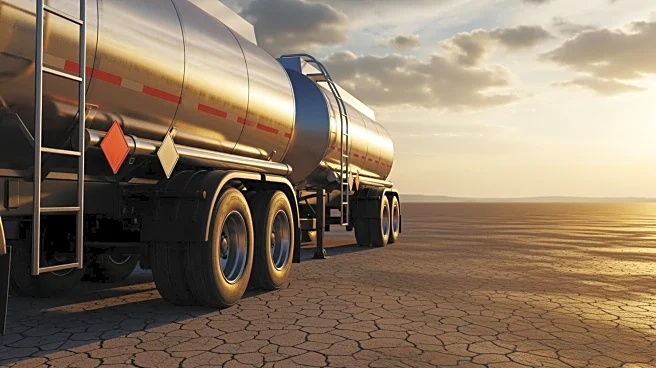What's Happening?
Niger has delivered 82 fuel tankers to Mali as a gesture of friendship amidst a critical fuel shortage caused by a blockade imposed by al Qaeda-linked militants. The tankers traveled a 1,400-kilometer journey from Niamey to Bamako, taking 21 days to arrive
safely despite regional insecurities. The fuel crisis in Mali has led to widespread disruptions, including the temporary closure of schools and universities from October 27 to November 9, 2025, as public transport was paralyzed. Classes resumed on November 10, although some teachers in rural areas continue to face difficulties due to lingering fuel shortages.
Why It's Important?
The delivery of fuel tankers from Niger to Mali is crucial in alleviating the severe fuel shortage that has disrupted daily life and economic activities in Mali. The blockade by jihadist groups aims to destabilize Mali's military-led government by restricting access to energy supplies, highlighting the ongoing security challenges in the region. The assistance from Niger, along with pledges from Russia to supply petroleum and agricultural products, underscores the importance of regional and international cooperation in addressing crises. The fuel shortage has significant implications for Mali's economy, affecting transportation, education, and overall stability.
What's Next?
Mali may continue to seek international support to address the fuel shortage and improve security measures to protect fuel convoys from militant attacks. The government might explore alternative energy sources and strategies to reduce dependency on fuel imports. Regional cooperation among Sahel states could be strengthened to address security challenges and ensure the safe passage of essential supplies.
















